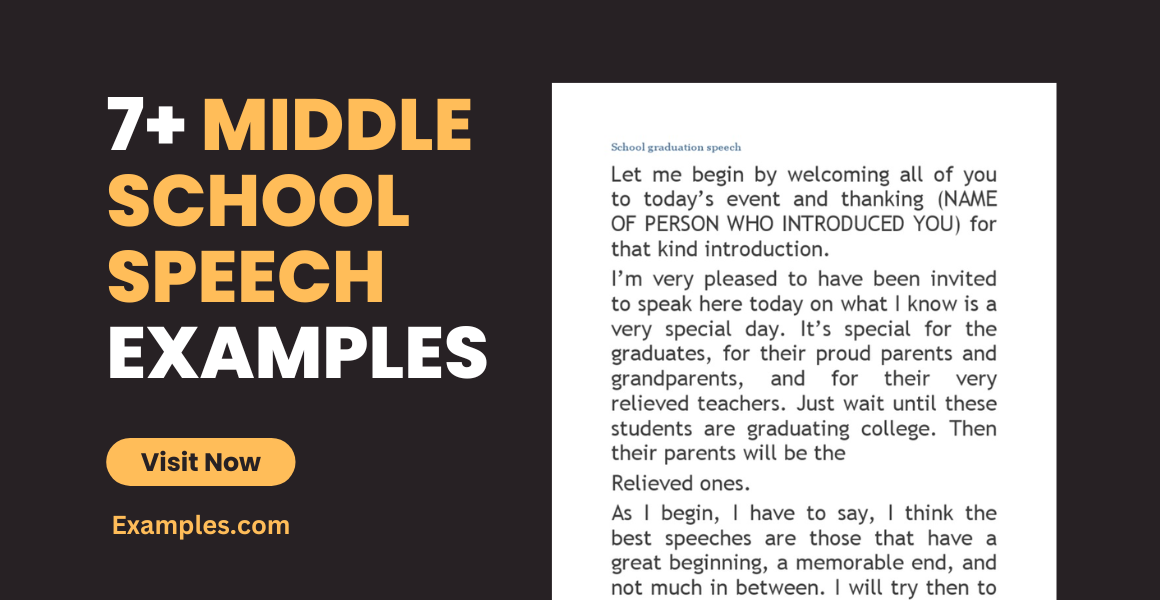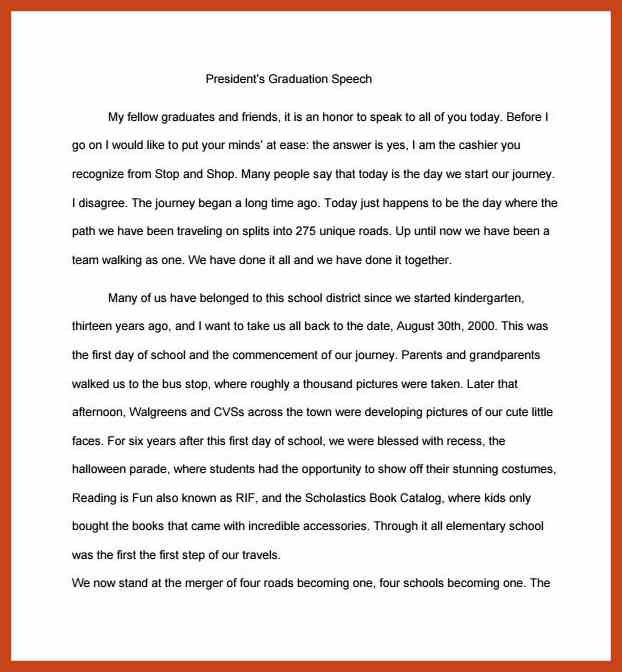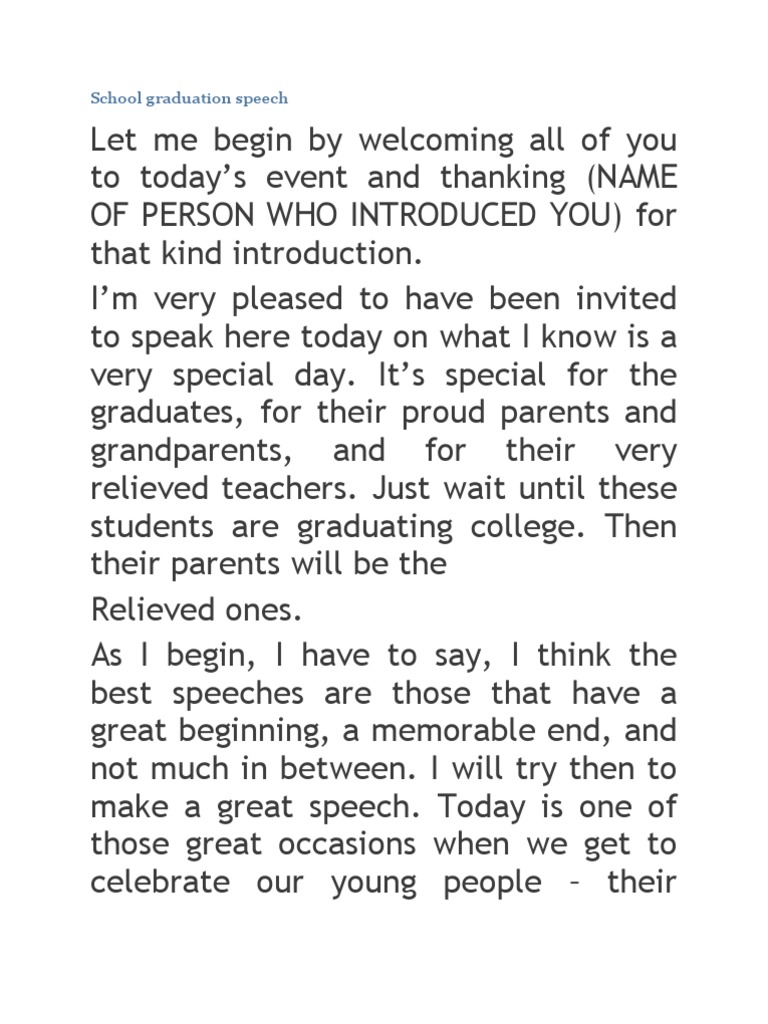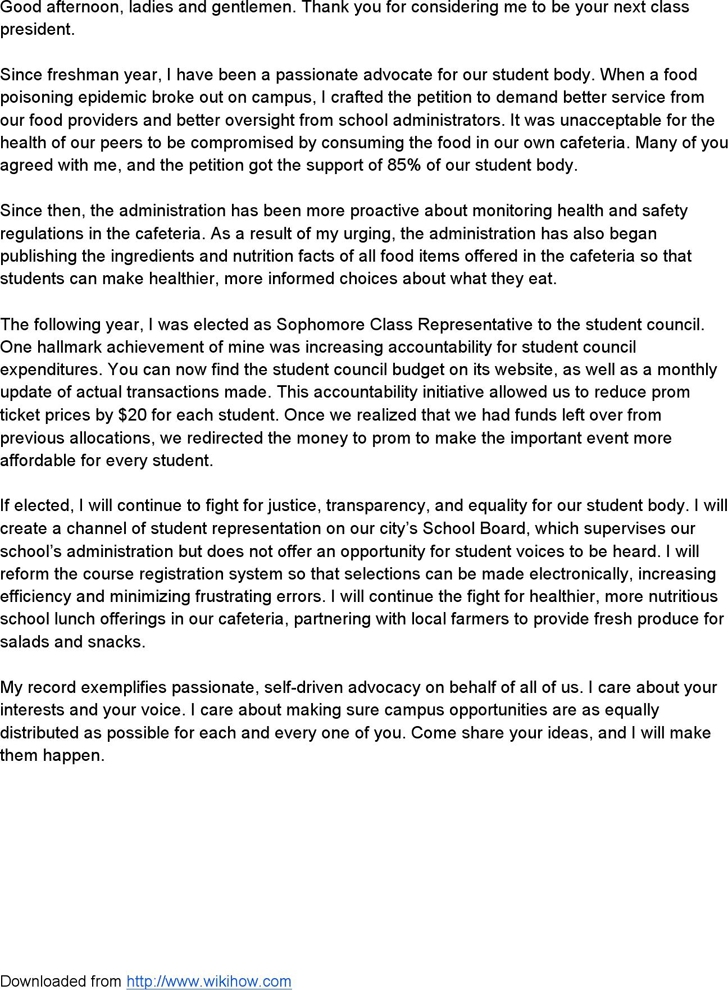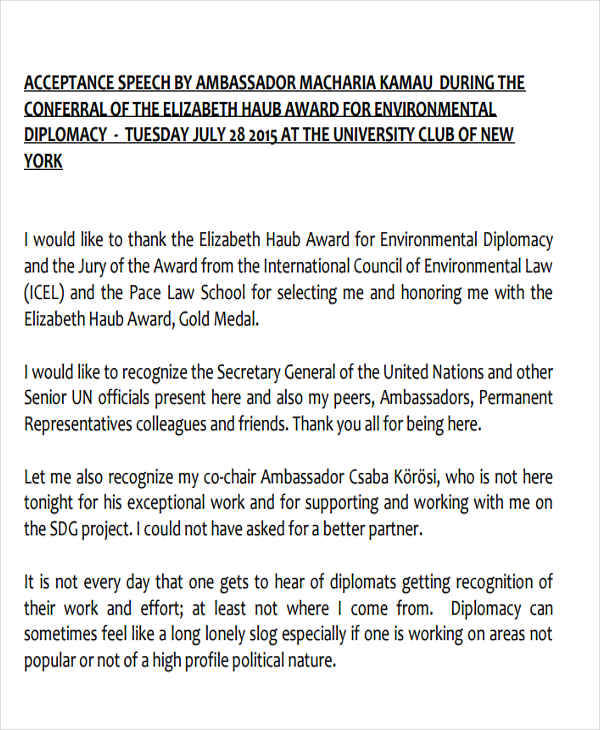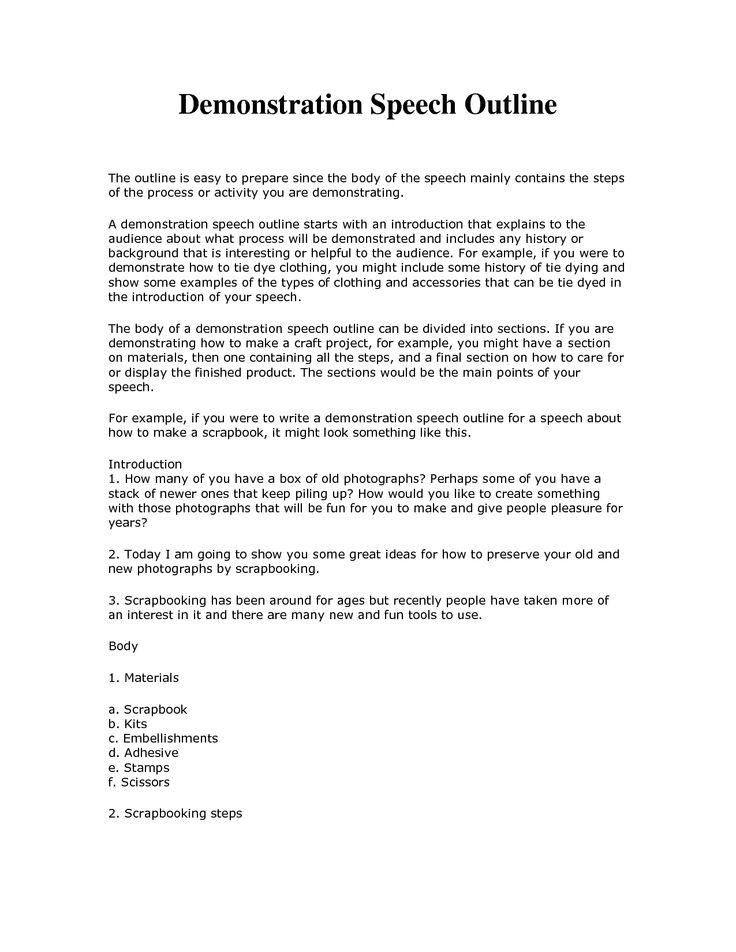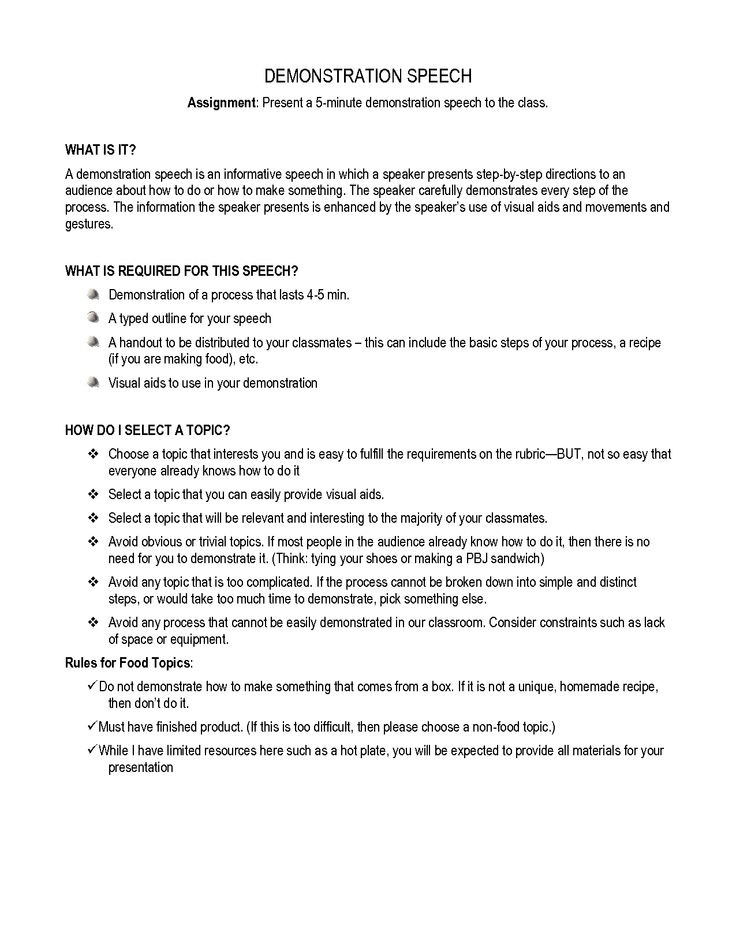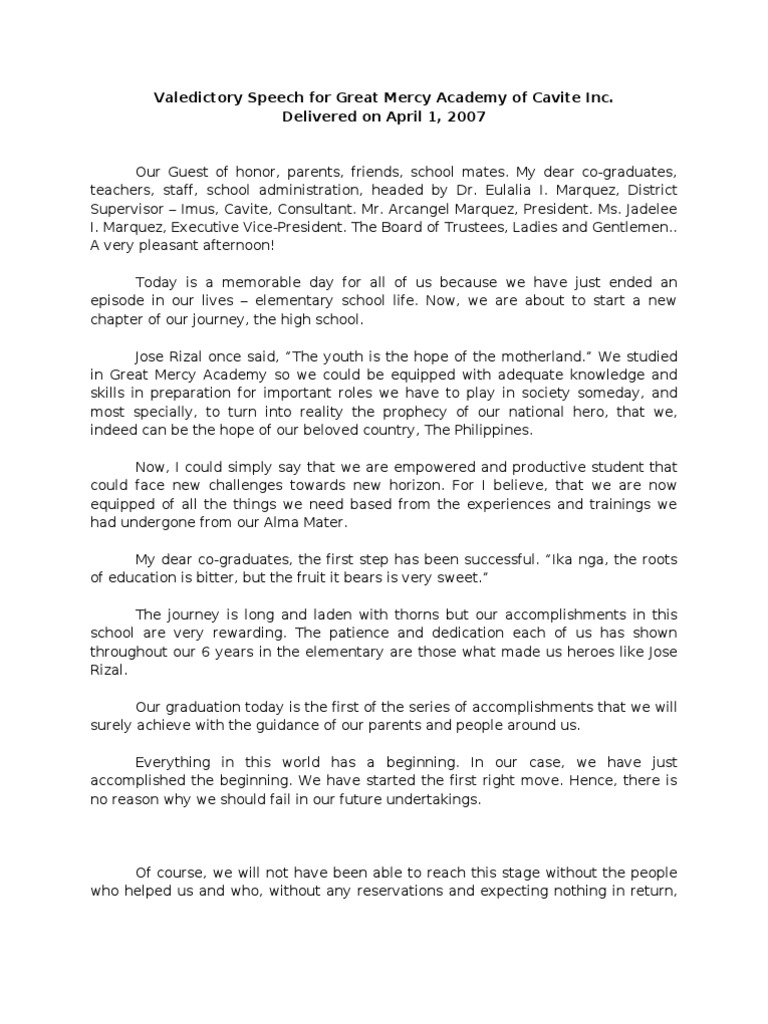7+ Middle School Speech Examples to Download
Making a speech is never meant to be easy. It is perhaps one of the most daunting tasks that you could ever ask a middle school student to do.
New Graduation Speech Example
Middle School Graduation Speech Example
High School President Speech Example
It is not only in terms of the topic, but also about the content and how the speech is going to be structured. But worry not, this article may be of some help to you as it will help you go through the step-by-step procedure in drafting a said speech. You may also see some examples of speech templates for further reference.
The Basics of Speech Writing
1. Choose Your Topic Well
Take a moment and a breather to think this through. What might be a suitable topic for middle school students? For one thing, it has to be inspirational to the point that students are willing to do better not only in their academic work but also with their private life as well. An example of a good topic would be about the value of hard work in finishing your studies, which does not involve cheating. Middle school students are able to relate to this topic as they are still studying. You may also see examples of writing a welcome speech for further insight.
2. Find Purpose or Thesis
Why are you giving a speech on this topic? Otherwise, there would be no point in delivering it the first place. They say that everything has a purpose and that there is no such thing as an accident. What is the end goal that your speech is trying to achieve? A good speech is made for a good reason: to inspire, to instruct, to rally support, to lead to action, etc. These are noble purposes — and not merely to sound off; feed the speaker’s ego; or to flatter, intimidate, or shame anyone. You may also check the 8 steps needed in speech composition should you need further assistance.
3. Get Organized
Speaking a disorganized speech would only make things worse. Start small. Make a point. Eventually, you will get there. Start with the introduction. Make it catchy and make it snappy because the attention span of today’s students is rather short. One of the best and famous ways that people start their professional speech is with a joke. Once you’ve got their attention, go on with the body and end strong with the conclusion.
- The body of the speech. State at least three points to support your argument. If they build on each other, good. Make a list and pick out the strongest arguments later when writing the first draft. You may also check out wedding speech examples if you happen to be selected as the best an or maid-of-honor.
4. Get Persuasive
There are two kinds of speeches: persuasive and informative. So with the topic you’ve chosen to deliver to the whole student body, look back and think as to whether the content of your speech is to inform or persuade the students. And how will you do that? Even if you have written a damn fine speech, but lack the emotional capability to deliver it, then all that effort and time would have been for nothing. You may also discover on writing examples of a dedication speech.
School Campaign Speech Example
School Award Speech Example
School Demonstration Speech Outline Example
Making it Effective
1. Choose Words Wisely
Remember that your audience is middle-schoolers; not elderly gentlemen or young adults or parents or teachers. Speakers must exercise the precaution on carefully selecting what terminology they decide to use with the audience. Because if they are not so careful, the speaker might end up insulting or hurt the feelings of their audience without them realizing it. Should you wish to thank someone for the things they have done, you may research on how to write a good thank-you speech.
2. Grab their Attention
There are many ways to get the students attention other than a joke or a story. To the more creative ones, you can come up with a role play or let the students themselves participate in whatever game or activity you are planning. Just as long as you grab their attention, I am sure that they will be able to keep themselves fixed on you throughout the rest of the day. Yes, even making an introduction speech also needs to be practiced and worked on. Making an after-dinner speech also helps out in lightening the mood.
3. Focus on Your Message
Don’t forget that you are there to deliver your speech. That’s why it is important to focus mainly on the message at hand and not get sidetracked. Although it is perfectly understandable for a person to get lost along the way but you should know how to bounce back in any situation. The audience is not there to hear your ramblings and whatnot, they are there to hear your topic. If it really cannot be avoided, then make an outline as to help you keep track of where you are heading in the speech. You may also see on how to make a leadership speech if you’re into that sort of thing.
4. Illustrate
Show and don’t tell. You have to make them visualize the scene and not just tell them about it. When visualizing the given scene, it is important to try and add life to the scene with the use of adjectives, adverbs, and figures of speech.
5. Think in Pauses
Pausing is not all bad. There are 2 advantages that can be thought off when adding pauses in the said speech: First, it gives you time to collect your thoughts. Let’s admit it: there are one too many times that people forget what they’re supposed to say. By adding pauses to some of the words or lines in your general speech helps correct that issue.
But the main reason why people add pauses in their speeches is to give emphasis on that certain phrase or word that the public should know about. Once you start a pause right after a specific word, the whole crowd becomes silent to reflect and ponder about the certain situation, meaning that you have control of the entire room.
- Speeches need to be natural – not read off of a paper. And when you talk, you have pauses. This is not slowing you down or showing your weakness, it shows that you have this down so well, you’re talking about it like an old pro.
Forming Your Speech
1. Start off with a Strong Introduction
Introductions are perhaps the most important part of your speech as it is often perceived as the most crucial factor to whether the audience will get bored of your speech or pay attention to you all throughout. There are many ways to begin your introduction So just try to find out what you can about the audience and wing it from there. You may also see tribute speech examples & samples.
- Opening with important remarks or quotes will immediately establish credibility.
2. Use Inclusive Terms for Individuals
Point to “our” things — our team, our city/state/country, or our school, our class-year, our work, people, and product/candidate, etc. Your audience will feel more included and a sense of belonging. If “we” feel that way, they’ll feel the pressure to feel that way, too. You may also like appreciation speech examples & samples.
- In a speech by Nelson Mandela, he started off with, “Today we celebrate not the victory of a party, but a victory for all the people of South Africa.”Now that’s a man whose oratorical prowess cannot be questioned.
3. Build the Body of the Speech
This part should contain the main points of the issue and support for each one. That list you made earlier? Narrow it down to about three. Which ones are the most convincing?
- Start off with your strongest point. You want the audience to start off seeing zero holes through your argument. Get them on your side before they get the chance to nitpick what you have to say. You may also check out presentation speech examples & samples.
- Put your weakest argument in the middle. You’re sandwiching it here to make it the most forgettable. And, indeed, it will be.
- End with your second strongest argument. You want to vamp it up a notch towards the end. Reel them back in, rounding out your argument with your last piece of evidence.
4. Be Aware of Your Transitions.
Transitions should not only go in between points in the body, but also after the introduction and into the conclusion. Again, your speech is one cohesive work, not a series of points that work independently. Show your audience that by transitioning clearly. You might be interested in how do you write a speech?
5. End with a firm conclusion.
Conclude with a powerful nail-down, summarizing what you came here to say. Leave them with a question or thoughts of implications; leave them with something — what do you want that something to be?
- Repeat key ideas. Make the audience recall and get on the mainline. Be sure they leave with the ideas you don’t want them to forget. You may also see orientation speech examples & samples.
- Give your audience a sense of completion in what you write. Bring them back to the beginning, but with a louder spirit — after all, they have all the knowledge necessary to be passionate now, too. This can be done by starting the last paragraph with a strong, declarative sentence that re-makes your point. You may also like acceptance speech examples.
School Demonstration Speech Example
School Valedictory Speech Example
Making a speech if you’re a middle school student is certainly not easy. So we’ve compiled some sample speech templates and examples for you to use. Good luck with your speech writing!


